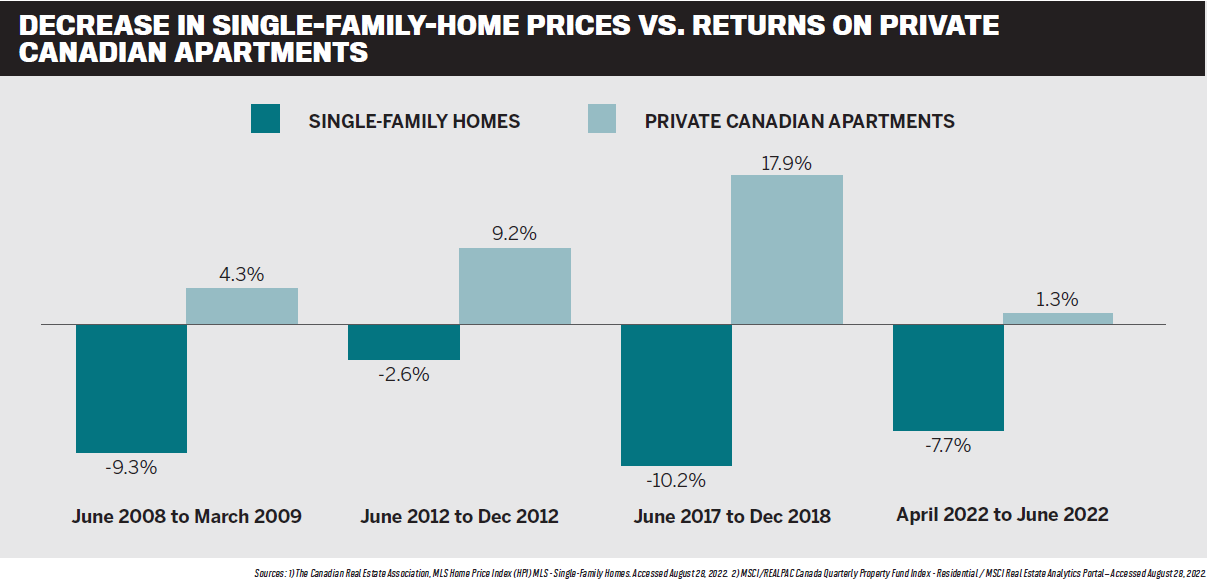Equiton has grown rapidly and credits its easy-to-understand philosophy and skill investing in income-producing real estate

This article was produced in partnership with Equiton.
The alternatives space is becoming crowded and complex as markets labour and the quest for income intensifies. But Jason Roque, CEO and founder of Equiton, a private real estate investment company which tripled its assets under management during the pandemic and is currently approaching $1 billion in AUM, believes its laser focus and simple investment philosophy gives the company an edge over competitors in the space.
Equiton makes no bones about sticking to what it’s good at – income-producing real estate – with a model everyone, from end clients to advisors, understands. Roque explains the model is essentially real estate investing 101 – Equiton owns and manages apartments on behalf of the investor, collects rent, and uses that to maintain buildings, cover expenses, and pay off the mortgage. Advisors and their clients benefit from the monthly income the property generates and the appreciation of the asset over time.
Lavelle Lindo, VP, national & strategic relationships, says it’s nothing different than what the average Canadian has gone through when either buying or renting a property. “When speaking to portfolio managers and analysts, after hearing the full story, a number of them at a lot of these large firms have said, ‘Wow, that’s really easy to under-stand, and that’s actually easy for the investor to understand.’ There’s nothing that’s too complicated about what we do and that’s a key selling point. We like to keep it simple to understand and simple to explain.”
Equiton’s mission since it was founded in 2015 has been to make institutional-grade private market real estate investments – which were typically available only to institutional or ultra-high-net-worth investors – accessible to the investing public. An active manager that prides itself on strong governance but also being agile, nimble, and aggressive, Equiton offers funds with a minimum investment starting as low as $5,000.
Its flagship Apartment Fund is pure-play multi-residential and 100 percent Canadian, and has had 77 months of positive returns since inception, performing well through the pandemic and ensuing market volatility and the highest inflation we have seen in decades. The fund is tax-efficient, too, with distributions treated as 100 percent return of capital.
As a pure play, the fund, which targets 8 to 12 percent annual net return, is different from anything else in the market. Lindo says: “People always want to know what they can compare us to. And you know, the answer is, ‘There are no competitors.’ There are companies that do slivers or aspects of what we do, but not the whole piece. We’re also Canadian-based only and that’s a very important distinction as well. Again, it’s very easy to understand and explain when you don’t have to talk about markets we don’t live in.”
Equiton provides other investment opportunities through its Income and Development Fund, which targets a 12 to 16 percent annual net return over a 10-year period, as well as through its real estate development offerings. The company’s philosophy is that, given the huge supply–demand housing imbalance in key markets in Canada, investing in new developments will be a critical strategy for years to come. These opportunities feature different aspects of the real estate asset class – lending, development, commercial, and industrial.
While the Equiton philosophy is easy to understand, many clients’ thinking may be clouded by the current environment of inflation and rising interest rates. The blanket verdict tends to be that this is bad for the sector. But this misunderstands the industry; while single-family homes are feeling the pinch, multi-residential apartment buildings do much better because as inflation and interest rates pick up, so do rent prices.
Roque says: “Apartments are typically considered a good hedge against inflation. Put simply, in an inflationary environment, rents go up, which means that apartment owners’ income is going up, and because these are hard assets, they go up in value.
This is the one real estate asset class where, in an inflationary environment, with higher interest rates, you can do very well.”
Lindo adds that during previous periods when the single-family-home index went down, the private apartment index actually fared well.
From a portfolio perspective, the funds offer enviable returns compared to fixed income, along with the tax-efficiency element. They also feature low volatility and essentially no correlation to the traditional asset classes. The nature of Equiton’s approach means it also takes risk off the table for the investor, one of the reasons the pure-play multi-residential apartment market is so appealing.
“When clients are looking at buffering their portfolio, we’ve seen that a number of the biggest brokerage firms and banks are now allowing a 25 percent allocation to alternatives,” Lindo says. “And we think that we’re an incredible play in that risk-adverse investment decision. Certainly, a private investment allocation to Equiton in a portfolio to combat the natural volatility that comes from public markets is definitely prudent.”
This is no flash-in-the-pan investment idea, either. The housing shortage and imbalance in Canada means the outlook for the next 10 to 20 years presents many investment opportunities. The Canada Mortgage and Housing Corporation (CMHC) believes the country needs 5.8 million new homes by 2030 to tackle the affordability crisis. The current rate of new construction is expected to add 2.3 million units by that time, representing a 3.5 million shortfall.
Roque says: “Based on that, the multi- apartment residential space becomes a very opportune place over the foreseeable future until this problem gets solved. If more people are coming in quicker that we can build houses, then there will certainly be upward pressure on the rental market for a longer period of time.”




